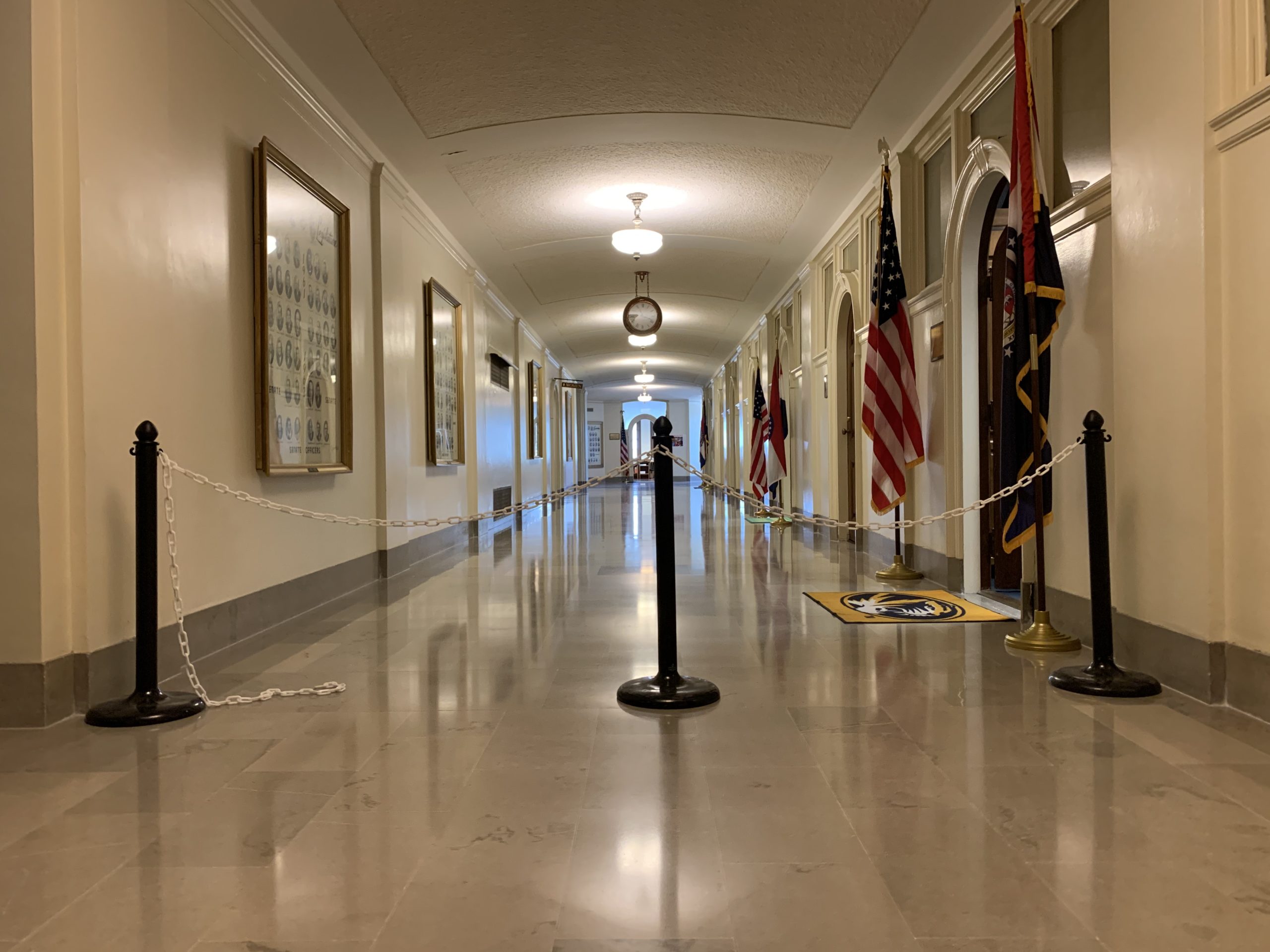JEFFERSON CITY, Mo. — With the legislative session cut short, lawmakers have stacked amendment after amendment on bills already near the finish line.
Legislators had said the main focus for what’s left of session should be the budget and other provisions meant to help Missourians in the aftermath of the COVID-19 global pandemic. But many bills in both chambers have grown to include much more, such as legalizing brass knuckles, arming teachers, or preventing a wind transmission line project.
The move to create omnibus bills before the session’s end has already been decried by a diverse, bipartisan coalition of Missouri organizations earlier this week.
From transportation to controlled substances, here’s a breakdown of what the Senate tackled Wednesday — and how the bills have evolved.
Third read and passed
HB 1854 was debated earlier this week on the Senate floor before it was laid over. However, the Senate third read and passed the bill, from Republican Rep. Donna Pfautsch, in a 21-10 vote Wednesday afternoon.
The bill regarded fines levied on political subdivisions. With the Senate Committee Substitute reaching about 160 pages, it now addresses certain taxes, local government expenditure data, and political restrictions for state employees.
An emergency clause on the bill was defeated in the Senate. Sen. Denny Hoskins carried the legislation in the upper chamber.
HB 1896 from Republican Rep. Lane Roberts was perfected in the House as a two-page bill related to background checks in Missouri’s fairly new medical marijuana industry.
It said state agencies would be prohibited from disclosing to the federal government or an unauthorized third party the statewide list or any person’s information who applied for or obtained a medical marijuana card.
It also stipulated the Department of Health and Senior Services “shall require” employees, owners, and other staff associated with licensed and certified medical marijuana facilities submit fingerprints to the Missouri State Highway Patrol for state and federal criminal background checks.
The Senate Committee Substitute grew to 64 pages and included restrictions on pseudoephedrine prescriptions. It also included prohibitions on the sale of edible marijuana products designed to appeal to minors, such as in the form of gummies, candies, or certain shapes and provisions regarding packaging.
The bill was third read and passed Wednesday evening in a 29-2 vote. An emergency clause was also adopted.
“We’re living up to our reputation of being a more deliberate body,” Sen. Lauren Arthur said during floor debate.
HB 1330 from Republican Rep. Rudy Veit authorizes the conveyance of certain state property in Calloway, Cole, and St. Francois counties. Additionally, it authorizes the conveyance of property in Ste. Genevieve County to the National Park Service and contains an emergency clause for property in St. Francois County.
In the Senate, the bill grew to include language pertaining to the Grain Belt: “no entity shall have the power of eminent domain … for the purpose of constructing above-ground merchant lines.”
An unlikely group of Democrats, some Republicans, and more conservative senators banded together to oppose the language. An amendment was offered to exclude projects that already have been granted a certificate of convenience and necessity from the Public Service Commission.
After nearly four hours of debate, the Senate passed the House bill in a unanimous vote without the eminent domain language. It only grew to include a property in Moberly.
Expect the Grain Belt provision to pop up on other legislation before session ends, however.
Laid over
HB 1963 from Republican Rep. Travis Fitzwater began as a three-page bill related to the Missouri Public-Private Partnerships Transportation Act. Specifically, the original bill sought to include a “tube transport system.”
By the time it was discussed on the floor Wednesday morning, the bill had grown to nearly 200 pages. The updated legislation sought to create an online driver’s license renewal program, increase the maximum amount of flight hours a noncommercial aircraft could be operated and still be subjected to a certain personal property tax rate, and extend the sunset on temporary boating safety identification cards, among other things.
Six amendments were added to the bill on the Senate floor and debate lasted for about two hours before the bill was laid over.
EDITOR’S NOTE: For up-to-date information on coronavirus, check with the CDC and DHSS.

Kaitlyn Schallhorn was the editor in chief of The Missouri Times from 2020-2022. She joined the newspaper in early 2019 after working as a reporter for Fox News in New York City.
Throughout her career, Kaitlyn has covered political campaigns across the U.S., including the 2016 presidential election, and humanitarian aid efforts in Africa and the Middle East.
She is a native of Missouri who studied journalism at Winthrop University in South Carolina. She is also an alumna of the National Journalism Center in Washington, D.C.
Contact Kaitlyn at kaitlyn@themissouritimes.com.
















